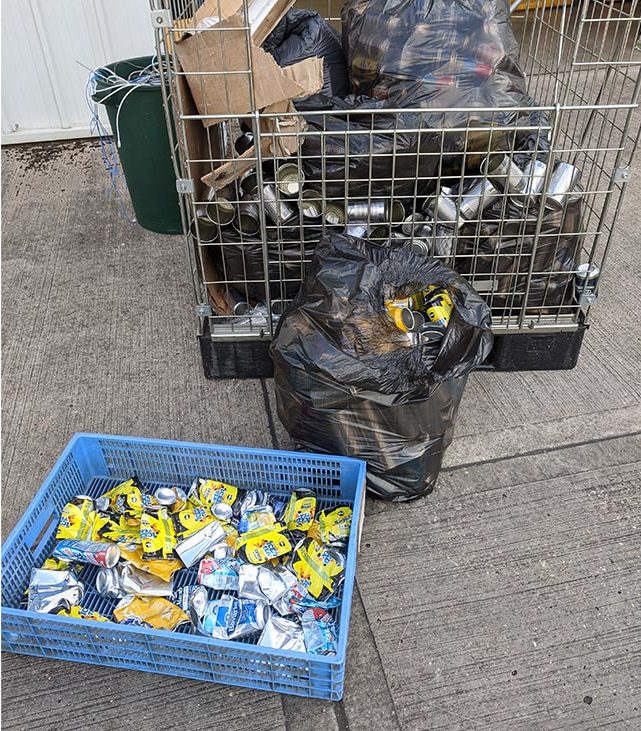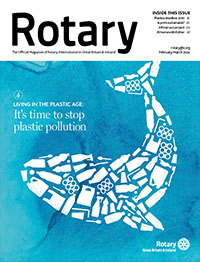A member of Worcester Rotary, Samy got into fund-raising 30 years ago while working at the George Eliot Hospital in Nuneaton to buy equipment for the Intensive Care Unit.
And that’s when he struck on the idea of recycling.
After finishing his shift, Samy would go round the hospital picking up drinks cans from waste bins, sorting aluminium cans from steel ones and then recycling them to raise cash.
Over two years, he managed to raise £1,500 for the hospital.
Fast forward to 2010 when he joined Worcester Rotary, Samy used recycling as the focus of raising funds for international humanitarian projects.
“I thought if recycling was successful 20 years ago, while individuals in the UK were not actively doing recycling, then surely in 2011 when green bins were around and people were more aware of recycling, we should do it for our Rotary club,” he said.
So over the past decade, Samy has become a serious recycler, initially storing the goods in his garage and even the kitchen, before building a workshop in his garden.


Samy’s recycling operation turns scrap, such as food cans, into funds for life-changing projects.
“I started asking Rotarians, neighbours, family and businesses to help me,” he recalled.
“I was looking for drinking cans, mechanical equipment, cables, metal-based bathroom and kitchen accessories, pipes, old computers and televisions, electronics and so on.
“And while doing that, I was contacting the recycling centres asking how to get the best rates for metals.
“After research, we acquired a Waste Transfer Licence from the Environment Agency to transport waste from individuals and from businesses.”
It has now become a well-oiled recycling machine and by 2020, he has raised just over £12,000 for charity from recycling.
In that time, Samy’s recycling and fund-raising efforts have turned scrap metal into a deep well for a school in the Philippines, made a donation to supply artificial limbs to amputees, contributed £3,700 to help patients in seven African countries gain access to centres for the visually-impaired, and made multiple donations to the End Polio Now programme.
Samy has made a donation for a Global Grant for the Project Peanut Butter in Malawi, which aims to reduce the incidence of severe acute malnutrition, which affects children aged between six months to five years.
He has also bought 30 Rotary Water Wheel Barrels to save women and children in Africa carrying heavy water barrels up to 30kg in weight on their shoulders and backs.
The money has stretched to help reconnect the water supply to a school and a girl’s hostel in Nepal.
By 2020, he has raised just over £12,000 for charity from recycling for a variety of great causes around the world.”
And last autumn, the recycling proceeds were directed towards the recovery of Beirut, following the deadly explosion in the Lebanese capital.
Persistence has paid off, and the impact has been immense, turning over between £1,100 to £1,300 a year by recycling scrap metal.
“To establish a successful programme you need to believe it is worth the effort,” added Samy.
“Know that segregated scrap metal has the best value and understand that dissembling equipment to get the metals is a skill.
“It is important to consider health and safety, and other legal issues, and advisable to have a team.
“You also need to know how to play the game to get the best rates for your recycling.
“But you also need a supportive spouse or partner, as well as supportive Rotarians, neighbours, family, friends, colleagues and businesses.”



























































